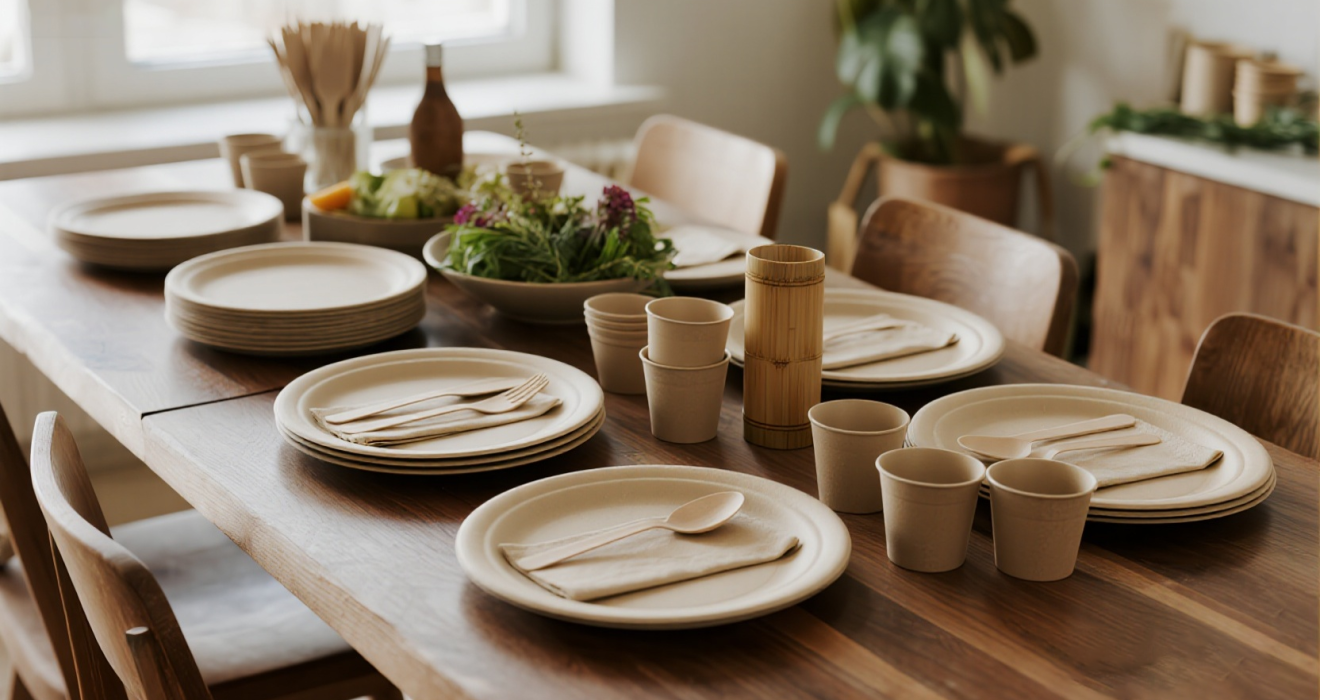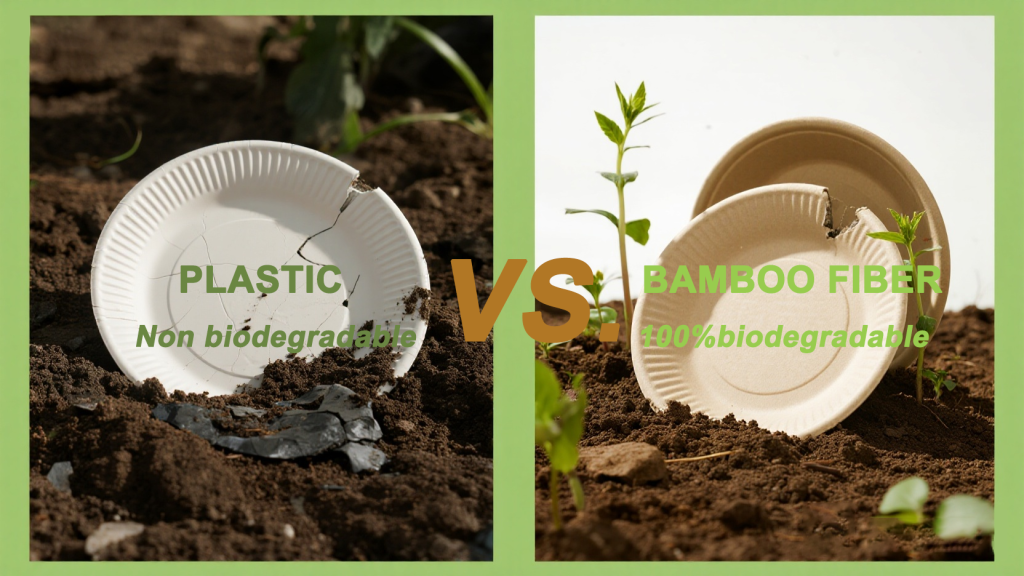
Once upon a time, stocking up on disposable plates was simple. You grabbed the cheapest plastic option, added it to the supply list, and checked the box. But times have changed. Today, procurement managers, wholesalers, and retailers are under more pressure than ever. Customers demand eco-friendly products. Governments are banning single-use plastics. And competitors are already switching to sustainable alternatives.
So, the question is no longer just about cost. It’s about branding, compliance, and customer expectations. Should your business continue using plastic, or is it time to invest in bamboo disposable dinnerware?
In this guide, we’ll break down the pros, cons, costs, and practical realities of bamboo versus plastic disposable tableware. Whether you’re sourcing for a catering company, grocery chain, or retail store, this article will help you make an informed decision.
Why This Choice Matters for Businesses
For many B2B buyers, disposable tableware isn’t just about function. It reflects on your brand, your values, and even your compliance with international regulations.
Think about it:
- A restaurant serving on plastic plates risks negative customer perception.
- A retailer offering eco-friendly bamboo products stands out on crowded shelves.
- A catering company showcasing stylish bamboo dinnerware creates instant Instagram-worthy moments.
Your customers notice. Regulators notice. And increasingly, your competitors notice too. That’s why choosing between bamboo and plastic matters far more than it used to.

Bamboo Disposable Tableware: A Closer Look
Bamboo has quickly become a front-runner in sustainable packaging and dinnerware. Known as one of the fastest-growing renewable resources on Earth, it offers a strong alternative to petroleum-based plastics.
Key Benefits for Businesses
✅ Eco-Friendly and Compostable
Unlike plastic, bamboo breaks down naturally in 1–3 years, depending on disposal conditions. This means no long-term landfill impact and a smaller carbon footprint for your business.
✅ Durable and Versatile
Bamboo fiber plates and bowls hold up under pressure—literally. They can handle hot curries, oily foods, and even heavy portions without collapsing or leaking.
✅ Premium Aesthetic
Let’s be honest—bamboo looks good. Customers associate bamboo with eco-consciousness, quality, and sophistication. It enhances your brand perception instantly.
✅ Compliance Ready
As plastic bans expand across the U.S., EU, Canada, and Australia, bamboo offers a safe, compliant alternative for businesses that want to avoid regulatory headaches.
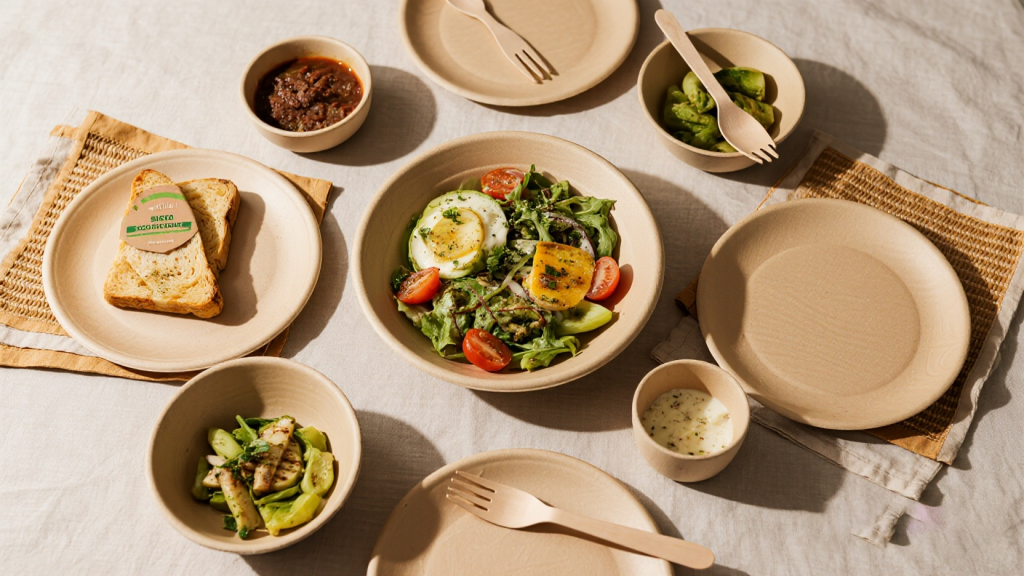
Cost Comparison: Is Bamboo Really More Expensive?
Yes, bamboo dinnerware can cost 20–50% more per unit compared to plastic. But businesses that switch often justify the expense with higher brand value, compliance advantages, and the ability to charge premium prices.
| Plate Type | Avg Cost (per unit) | Disposal Type | Brand Impact |
|---|---|---|---|
| Plastic | $0.08 – $0.15 | Landfill | 🟥 Negative |
| Bamboo | $0.20 – $0.45 | Compostable | 🟩 Positive |
And let’s not forget: offering sustainable options can justify premium pricing, making the ROI very realistic in bulk B2B use.
Real B2B Use Cases: Why Businesses Are Switching
• Catering Companies:
Switch to bamboo plates and cutlery for weddings, outdoor events, and private chef services. The premium feel enhances the dining experience.
• Meal Prep & Bento Box Services:
Bamboo compartment lunch boxes are leak-proof and eco-friendly, ideal for delivery-based businesses.
• Wholesalers & Retailers:
Eco-friendly packaging is now a major purchasing factor for end consumers. Wholesalers using bamboo see better shelf presence.
At ChongBamboo, we provide tailored solutions for catering companies, meal prep services, wholesalers, and retailers. https://www.chongbamboo.com/custom-solutions/
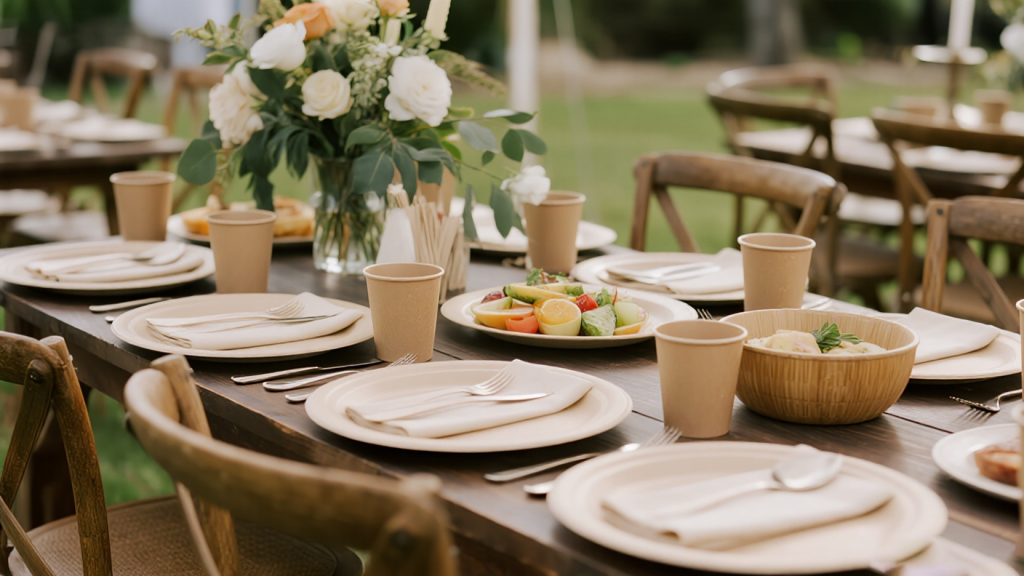
What to Watch Out For with Bamboo
While bamboo offers many benefits, buyers should be aware of a few important considerations:
- Not All Bamboo Is Pure
Some low-cost bamboo products are blended with plastic or glue. Always check for certifications like FDA, LFGB, or compostability labels. - Proper Disposal Matters
Bamboo is compostable, but only when disposed of properly. If customers toss it in general trash, the eco-benefits are reduced. - MOQ Challenges
Some suppliers require high minimum order quantities. Work with manufacturers who support flexible bulk orders. - Customization
Ask if products can be branded with your logo or customized for retail packaging. This makes a big difference in shelf appeal.
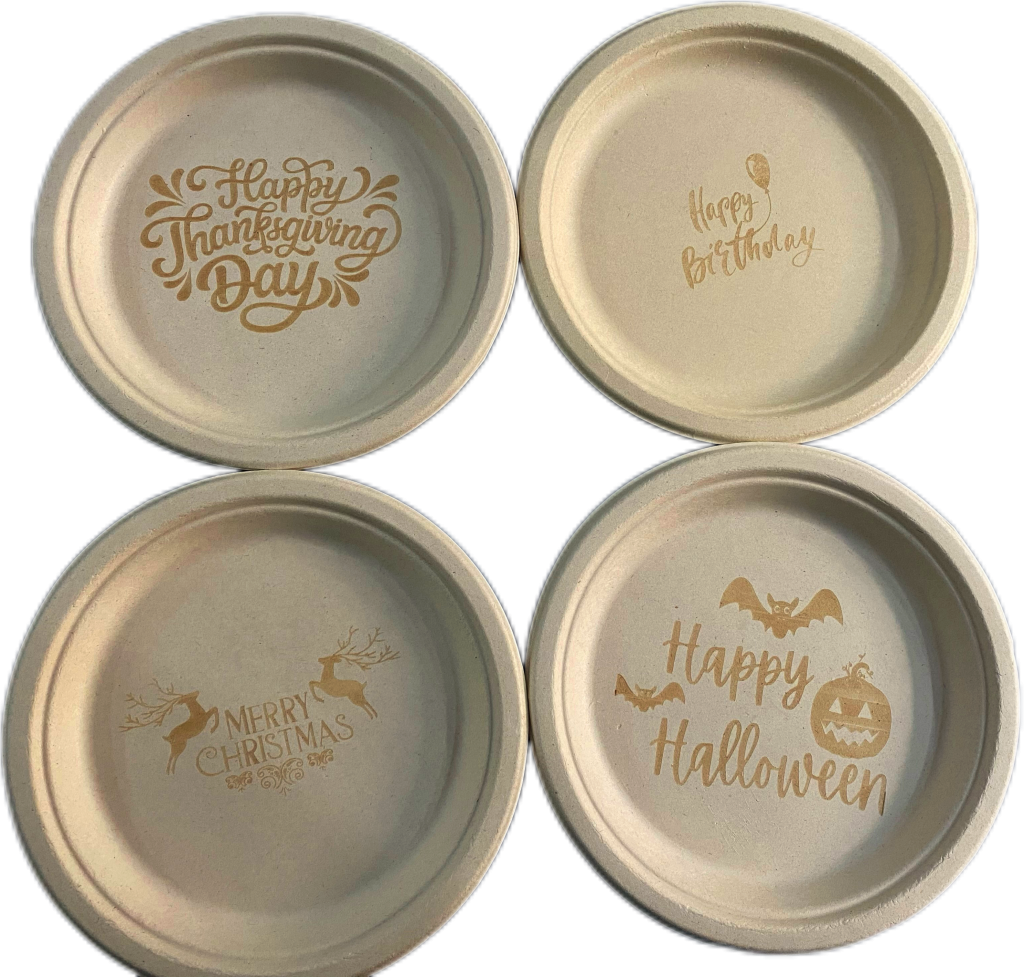
✅ Pro Tip:
Request samples before large orders, and ask your supplier about eco-certifications, lead time, and custom branding options. Don’t gamble 10,000 units on trust.
Global Regulatory Trends: Why the Switch Is Urgent
Plastic bans are no longer isolated. From the European Union’s Single-Use Plastics Directive to state-level bans across the U.S., regulations are expanding.
For businesses, this means one thing: adapt now, or risk disruption later.
Switching to bamboo ensures compliance, while also positioning your brand as a leader in sustainability.
The Branding Advantage
Today’s consumers don’t just buy products—they buy values. When businesses switch to bamboo, they send a message:
- You care about the environment.
- You invest in quality.
- You align with modern sustainability standards.
In contrast, sticking with plastic sends the opposite signal: short-term savings over long-term responsibility.
Which story do you want your brand to tell?
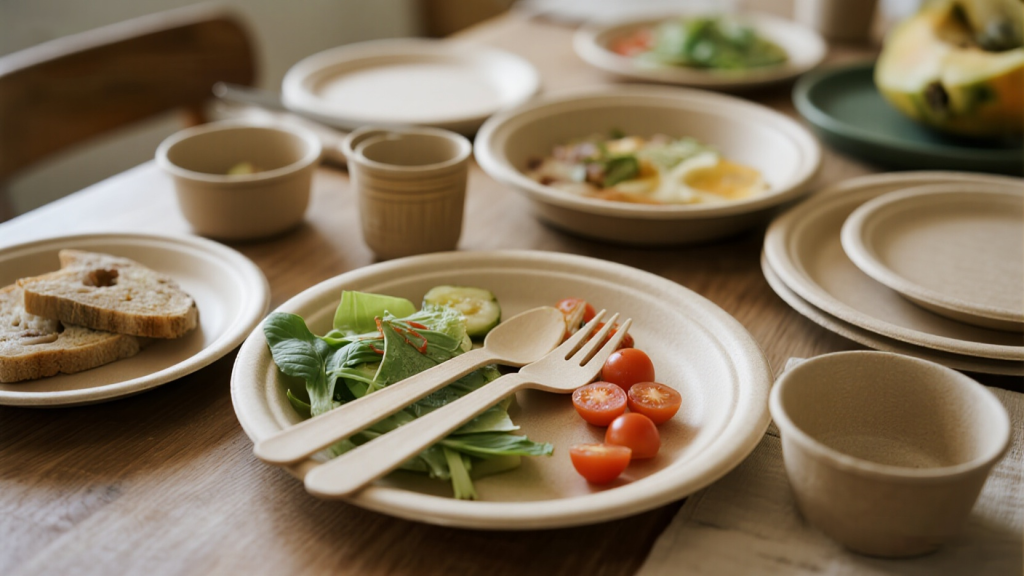
Final Verdict: Bamboo vs Plastic for B2B Buyers
- Plastic: Cheap. Widely available. Increasingly risky.
- Bamboo: Slightly pricier. Far better for your brand, your compliance, and your customers.
For B2B buyers, the choice is clear. Bamboo isn’t just dinnerware—it’s a competitive advantage.
🔗 Click here to view our best-selling bamboo products →
Key Takeaways
- Bamboo disposable tableware is eco-friendly, durable, and increasingly in demand.
- Plastic is cheaper but comes with reputational and regulatory risks.
- Businesses that switch to bamboo improve compliance, brand value, and customer loyalty.
- Real-world B2B use cases—from catering to retail—prove the ROI of bamboo is strong.
The future of disposable dinnerware is not plastic. It’s bamboo.

